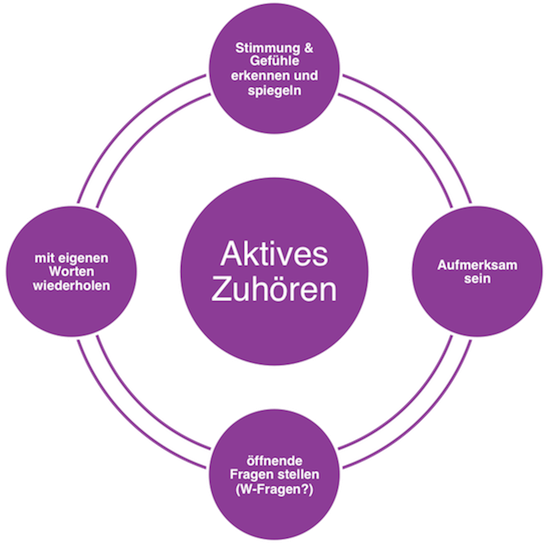
- You are here:
- Homepage
- › Online Courses
- › Cold calling course
Cold calling seminar for call center agents
Numerous companies seek call center agents for a few days or weeks. To prepare yourself for such a deployment in the area of cold-calling, we readied this free course. Work through this page thoroughly. You will need approx. 4 hours. After that, you are surely able to correctly answer all the questions in the quiz. If you are still feeling the need to further prepare yourself for your job(s), you will find a YouTube channel with many videos on how to succeed at cold-calling.

If you are already registered at InStaff, please use that same email-address for the test. Upon succesful completion of the test, you will receive a badge for your profile. Potential clients will see that you already occupied yourself with telemarketing, even if you do not have any experience to show for. This way, you increase your chances of getting booked.
At least 75% to pass
The test can be taken 3 times
You receive a badge for your InStaff profile, which all clients can see
Introduction to Telemarketing
Procedure of a telemarketing job
At telemarketing jobs, you work at a desk with a headset and work your way down a list of phone numbers (“head list” or “lead list”). This list contains companies who are potentially interested in the to-be-marketed product. It contains information about a possible contact person, phone number, company, as well as possible further information relevant to the conversation – e.g. company-size.
The head list is mostly laid out in a so-called CRM-system (Customer Relationship Management System), with which you can organize your conversations and their results. One task will be to document your talks and possibly engage follow-actions, e.g. repeated calls or sending out info-material and contracts. You are using a headset to keep your hands free to take notes or input information into a computer.
Percs of telemarketing
It would be very expensive to go and visit every potential client to introduce a product or service. A call is personal and more binding than an email and there is the possibility to directly answer the clients questions.
Possible goals of telemarketing
There are different targets to be pursued in telemarketing. Of course, your contact person will tell you about the goal of your job and prepare you for that.
- Getting information
For example: name and number of a contact person for your product, if this is unclear at the beginning; evaluating if person or company matches criteria for your purpose. - Schedule an appointment for an on-site conversation
This can then be an extensive consulting or sales conversation, which is typically led by one of the company’s salesmen. Your task is to evoke interest for the product. - Directly selling the product
Here it is the goal to get the client to bindingly buy or agree to buy the product on the phone, followed by sending out a sales contract.
Code of behavior during telemarketing conversations
Preparation
Pay attention to being intensively briefed about the product, ist advantages and the pricing. On top of that, you should be informed about possibly competing products and the most important facts about the company which you represent.
Normally, you receive a written guideline with possible conversation courses, questions and answers and additional information. Should there not be one, you should do one yourself before you start and add any questions, problems and other situations. Things that should absolutely be part of the guideline are:
- Information on the own product and company
- Information on contact persons
- Information on competetion
- Possible questions and answers
- Objections and their treatment
- Your conversation goal(s)
- A short and interest-evoking beginning
Rules of courtesy
In most cases, your contact partner is a stranger. Respectful interactions is required to make a good first impression. Therefore, you should internalize the following points.
- Memorize your contact’s name and include it
- Address the person by Mrs. or Mr.
- Speak clearly
- Positive charisma, mood is very important
- Always react objectively, no matter what the client might says.
- Let the client finish speaking
False promises and false statements
Do not make promises which cannot be held. This is damaging to your employer’s reputation. The client is disappointed by false promises and will report this in a lot of cases. On top of that, he deems the company unreliable. You will often hear questions like:
- Can you promise, that this will work?
- Can you get this done until tomorrow?
Turn off your mobile
The smartphone is an essential component of our day-to-day. Yet, it is often a interference or disruption. This has no place in a work routine. On the one side, this does not evoke a good impression with the company. On the other side, interference in a acquisition-conversation is always impolite. The client deserves your full attention.Die 5 Fragen, die sich der Kunde stellt
In most cases, not only you do not know your contact, he does not know you as well. Thus, he needs information about you. He asks himself 5 questions, which you should answer at the beginning of the conversation.
- Who is this?
- How long is it going to take?
- What does this person want?
- Is he acting in my interest?
- How do I profit?
Telemarketing tips fort he first conversation
It is completely normal to be scared before your first call. You will notice that it grows easier with each call. Here are a few tips for your first calls:
- Prepare well by writing down and answering all your questions about the product which you offer. Especially your introductory sentences should be practiced, so you can easily carry them out.
- Do not take a „no“ or unfriendly rejection personally. Instead, just move on to the next call. The person you called maybe was in a situation.
- Take your time, as each question of objections adds to your knowledge of (not-)working principles, increasing your chances of reaching your goal.
- You do not have to reach your final goal with your first call. Partition your goal to small steps. It is enough to leave your contact partner with a positive emotion and you reach a subgoal.
- After each conversation, reflect how it went and which steps you want to vary in the following calls. This helps you to better react in similar situations in the future.
The telemarketing conversation
We will now summarize an ideal telemarketing conversation. As said, these are only recommendations. Deviations and adjustments are normal.
The right contact-person
If you do not already have name and number of the right contact partner at the called company, your first task is to find the one responsible for your product area. Explain quickly to your contact, for which area you need a contact person and ask for their name and number. Especially for big companies this is essential, as you will only reach your goal with the right contact person.
Introduction
The introduction is enormously important, as you will usually only get one tot wo sentences to evoke the interest of your client. Only the first impression matters. Typical introductions, that produce rejections in most clients, are displayed in the first video. The second video shows you how to successfully begin your conversation.
If you get the impression that your contact has no time and no interest, it is not worth it to spend your time on him. Stay polite, but end the conversation as quickly as possible. Do not misinterpret a wait-and-see attitude with a lack of interest.
Main part
After a successful introduction, you should aim to answer the client’s five questions. The clien’ts interest will increase and the conversation evolves. Ensure that client understands your case. Try to get him to talk freely asking open questions (How? What? Why?).If the person starts to negotiate, always start at the highest price of the list Do not start negotiations without a permit, as the prices are often rigid. It is different if you receive scope of action. -->
Closing
At this point of the conversation, it is about successfully closing the deal. This means reaching the goal. You can look at the following closing-techniques, which are a big help in reaching your individual goal in the final stage of the conversation.Instruments for the call
Meeting objections during telemarketing
You will always have to deal with objections, as the client is initially skeptical and not very interested. A little skill and experience will help you manage. Fundamentally, it is important not to try convincing the person. Your opposite will notice this and in turn be even less interested. Consider that pressure is always met with pressure. Relieve pressure from the situation and pose a subject-specific question. For this, we compiled a few examples of typical objections: “Too expensive”- What exactly is too expensive for you?
- What price would you suggest?
- I think the price is fair, given the high quality.
- I understand, you want to inform yourself first. To ensure you get the right material, which really interests you, I have one last question, okay?
- Can you tell me about the reasons for your hesitation? I would schedule a new appointment.
- OK. Which criteria are relevant for your comparison? Can I supply you with additional information?
- Here you can turn the tables by acknowledging and anticipating this during your introductory sentences: “You probably have a logistics partner already.”
Active Listening
To convince your conversation partner of your true interest in his (entrepreneurial) problems, you have to actively listen to him. This mean focusing on his words, rather than already thinking about what you are going to say next. He will quickly notice if you do not pay attention.
Communication can be split into verbal (what is said) and non-verbal (gestures, facial expressions) communication. As telemarketing only offers the verbal form, you should learn techniques on how to signalize active listening.

Repeat in your own words
Summarize long sentences of your conversation partner in your own words, to display that you followed what she said ("Is it right, that… ?").
Pay attention
Follow the conversation and do not lose focus. This way you can better recognize when to talk and when to listen.
Ask questions
Questions like “how?” “what?” and “why?” display an interest in details and backgrounds that motivate your conversation partner to share his perspective.
Notice moods and emotions to reflect them
When communicating in person, we most often signalize our consent by nodding, holding eye-contact and smiling. During calls it is helpful to directly voice reactions and decode the emotions. Ask you conversation partner how he assesses the situation and be open-minded.
Speaking pattern
Use your voice as an instrument
Besides what you say, it is also very important how you say it. Force yourself to talk slowly, make breaks and accentuate the essential parts. This video shows you what difference your voice can achieve for making the conversation interesting.
Words to avoid
Filler words evoke the impression that one does not know wha to say. This will seem unprofessional to your conversation partner. Additionally, one will be perceived as not being eloquent. So, avoid words like „ Außerdem wirst du als nicht redegewandt wahrgenommen. Deshalb vermeide Wörter wie "Er", "Well", "Or" "Possibly", "Naturally", "Basically", etc. If you are at a loss for words, rather take a little break and think about your next words, instead of filling the break with empty phrases.
Generalizations and exaggerations like "one", "anybody", "everyone", "in any case", "self-explanatory", "always" are also to be used with caution, as these seem impersonal and unprofessional. It is better to draw upon concrete examples.
When using subjunctives like "should", "could" or "would", your conversation partner is left in the dark to whether he can be assured of the talked about actually happening. Avoid such statements as your conversation partner expects expertise.
Closing techniques
Closing techniques help you to bring about the product’s actual purchase. To know when to use these techniques, it is imperative to know when your client is ready. There are signals which need to be recognized. It is important that you close the deal when they are sent.
The following signals are to be kept in mind:
- Concrete questions from the client: "How does this work?"
- Verbal consent: "interesting", "aha", "yes"
- Client shares his views: He answers your questions
Should a client hesitate ("Yes, I don’t know…”) it is rather a “Yes”. Regard this as a good sign and confirmation that the client is interested, but is still unsure. In this case, ask about the reasons for his hesitation.
Action:
- Positive emotion: "Good, Mr. Client, I’m looking forward to our next conversation on…"
- Explanation of the further procedure: Sending documents
- Affirming the purchase decision: "You will notice how wonderful the product is."
- Repeated positive emotion to conclude: "Have a beautiful day, Mr. Client."
If your client does not speak fluently, you should slowly repeat the essential parts.
Telemarketing test
Now, test your knowledge in the field of telemarketing & leading a conversation. In this quiz, we will dive in to the aspects you should know as a telemarketing and sales operator.
At least 75% to pass
The test can be taken 3 times
You receive a badge for your InStaff profile, which all clients can see
Additional online seminars from InStaff
We currently offer four online seminars for temporary jobbers.

